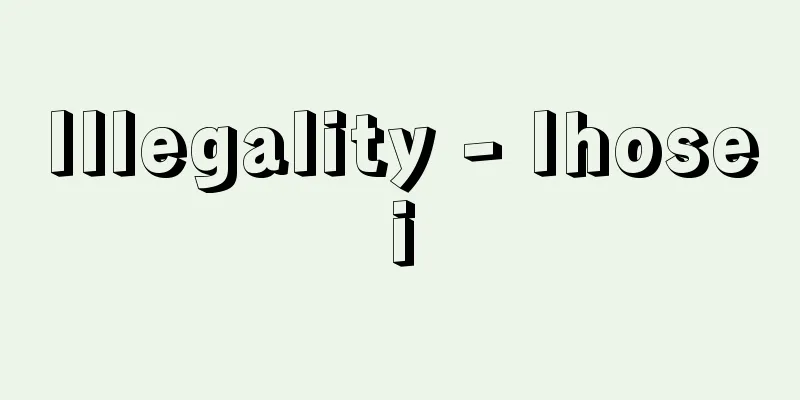Mari - Mari

|
A republic in northwestern Africa. It borders Algeria to the north, Niger to the east, Mauritania to the west, and Burkina Faso, Côte d'Ivoire, Guinea, and Senegal to the south. It has a population of about 16.3 million (2012). It is a multi-ethnic country with more than 20 ethnic groups, and about 80% of the population is Muslim. The black Bambara and Malinke people live in the central and southern part of the country, while the white nomadic Tuareg and Berber people live in the north. The official language is French. Its area is 1.24 million square kilometers (about 3.3 times that of Japan), and the northern half of the country is covered by the Sahara Desert. The steppe and savannah areas along the Niger River in the central and southern part of the country are dotted with historically prosperous trading cities such as the capital Bamako, Timbuktu, Gao, and Djenné. The main industry is agriculture, with livestock farming and the cultivation of cotton, peanuts, and corn being thriving. The country is also rich in underground resources such as oil, gold, phosphate rock, manganese, and uranium, and in recent years has been developing with foreign capital. There are also many tourist attractions, including the World Heritage sites of Timbuktu, the old town of Djenné, and the Bandiagara Cliffs (a settlement of the Dogon people). Mali is a key trading point in North Africa, and many kingdoms have flourished there since ancient times. The Kingdom of Ghana ruled over a wide area of West Africa from the 8th to 12th centuries. The Kingdom of Ghana, which was made up of the Mande tribes, prospered through trade with the Sahara, but fell into decline at the end of the 11th century after being invaded by the Almoravid dynasty (a Berber Islamic dynasty), and at the same time, it adopted Islam. From the 13th to the 16th centuries, the Mali Empire of the Malinke people prospered through trade in salt and gold, and the oasis city of Timbuktu was known in Western Europe as the "City of Gold." The Songhai Kingdom emerged in the 16th century, but after that, many small countries were established. After the 18th century, it was invaded by the French, and in 1892 it was colonized as "French Sudan". In 1920, it was incorporated into "French West Africa" along with seven neighboring countries on the Gulf of Guinea. The country achieved independence in 1960, a year known as the "Year of Africa." Modibo Keita, who became the first president, worked to build a socialist state, but was ousted in a military coup led by Moussa Traoré in 1968. M. Traoré's dictatorial regime continued, but was overthrown by the military's Amadou Touré in 1991, and the Alpha Konaré government was established the following year through direct popular elections. The Touré government continued from 2002 onwards, but in March 2012, a rebellion broke out by government forces. Taking advantage of this, the National Movement for the Liberation of Azawad (MNLA), a Tuareg group in the north that advocates national self-determination, and Ansar Dine (an Islamic organization of Tuareg people) launched an armed uprising. The MNLA took control of major cities in the north and announced independence (Declaration of Independence of Azawad) the following month. With the country effectively divided in two, President Touré of the central government resigned and National Assembly Speaker Dioncounda Traoré became interim president. Subsequently, in the north, which was under MNLA control, Al-Qaeda's North African arm, Al-Qaeda in the Islamic Maghreb (AQIM), expanded its influence and seized control from the MNLA. With the military divided, the interim government of D. Traoré found itself at a disadvantage and requested military intervention from France, its former colonial power. Following a resolution from the UN Security Council, the French military began airstrikes on the north in January 2013. The Economic Community of West African States (ECOWAS), wary of the expansion of Al-Qaeda-affiliated forces, also strongly supports the military intervention by the French Hollande administration. (Hideki Osako, Freelance Editor / 2013) Source : "Chiezo" published by Asahi Shimbun Publications Co., Ltd. About Chiezo |
|
アフリカ北西部の共和国。北はアルジェリア、東はニジェール、西はモーリタニア、南はブルキナファソ、コートジボワール、ギニア、セネガルに接する。人口は約1630万人(2012年)。20以上の民族からなる多民族国家で、国民の約8割はイスラム教徒。中南部に黒人系のバンバラ人、マリンケ人ほか、北部に白人系の遊牧民トゥアレグ人、ベルベル人ほかが暮らす。公用語はフランス語。面積は124万平方キロメートル(日本の約3.3倍)で、国土の北半分はサハラ砂漠が広がり、中南部を流れるニジェール川沿岸のステップ~サバナ地帯に、首都バマコを始め、トンブクトゥ、ガオ、ジェンネなど歴史上、栄えた交易都市が点在する。主産業は農業で、牧畜と綿花・落花生・トウモロコシの栽培が盛ん。また、石油、金、リン鉱石、マンガン、ウランなど地下資源も豊富で、近年、外国資本による開発が進められている。世界遺産の登録地トンブクトゥ、ジェンネ旧市街、バンディアガラの断崖(ドゴン人の居住区)を始め観光資源も多い。 マリは北アフリカ交易の要衝にあたり、古代から多くの王国が栄えた。8~12世紀、西アフリカ一帯を広く支配したのが、ガーナ王国である。マンデ諸族からなるガーナ王国はサハラ交易で繁栄を築いたが、11世紀末、ムラービト朝(ベルベル人のイスラム王朝)の侵入を受けて衰退し、同時にイスラム教を受容することとなった。13~16世紀には、マリンケ人のマリ帝国が塩や金の交易で栄え、オアシス都市トンブクトゥは「黄金の都」として西欧にも知られた。16世紀にはソンガイ王国が興ったが、その後は小国が乱立。18世紀以降、フランス人の侵入を受け、1892年に「フランス領スーダン」として植民地化された。1920年には、周辺・ギニア湾岸の7カ国とともに「フランス領西アフリカ」に組み込まれた。 「アフリカの年」といわれた60年、独立を遂げる。初代大統領に就任したモディボ・ケイタは社会主義国家の建設を進めたが、68年にムーサ・トラオレが率いる軍事クーデターによって追放された。その後、M.トラオレの独裁政権が続いたが、91年、軍のアマドゥ・トゥーレによって倒され、翌年、国民の直接選挙によってアルファ・コナレ政権が誕生した。2002年以降はトゥーレ政権が続いたが、12年3月、政府軍による反乱が発生。これに乗じて、民族自決を掲げる北部トゥアレグ人の「アザワド解放国民運動(MNLA)」と「アンサル・ディーン」(トゥアレグ人のイスラム組織)が武装蜂起した。MNLAは北部の主要都市を制圧し、翌月独立(アザワド独立宣言)を発表した。事実上国土が二分された結果を受け、中央政府のトゥーレ大統領は辞任し、国民議会議長のディオンクンダ・トラオレが暫定大統領に就任した。 その後、MNLAが支配する北部では、アルカイダの北アフリカ組織「イスラム・マグレブ諸国のアルカイダ(AQIM)」が勢力を拡大し、MNLAから支配権を奪った。軍の分裂もあって、劣勢となったD.トラオレ暫定政権は、旧宗主国のフランスに軍事介入を要請。国連安全保障理事会の決議を経て、13年1月フランス軍は北部への空爆を開始した。アルカイダ系の勢力拡大を警戒する西アフリカ諸国経済共同体(ECOWAS)も、仏オランド政権の軍事介入を強く支持している。 (大迫秀樹 フリー編集者 / 2013年) 出典 (株)朝日新聞出版発行「知恵蔵」知恵蔵について 情報 |
Recommend
Gomphidae
...A general term for insects in the Gomphidae fa...
Steel guitar
A type of guitar used in popular music (illustrati...
Dutch interpreter - Dutch interpreter
In the Edo period, they were officials who worked ...
Duck Nanban - Duck Nanban
...The former was called "mori" and the...
Lake Nojiri - Nojiriko
This lake is located in Shinanomachi, Kamiminochi...
Approximation method - Kinjikaiho
... When the transportation network between citie...
show lily
...Leaves are thin and narrowly lanceolate to lin...
articulation reference equivalent
...As shown in the table, evaluation scales such ...
Smoke - smoke
It is generated by combustion, and generally refer...
Montreuil, P.de (English spelling) MontreuilPde
...First, Saint Genevieve founded a monastery (la...
Carrozza
…Seventeen types of carriages are known from Roma...
Ahabenammah [Islands] - Ahabenammah
Located in the southwest of Finland at the mouth o...
Indian architecture - Indian architecture
A general term for buildings that were created in ...
Kallan
In British India, the term was defined as a group...
Wolfgang
…The feast day of the woodcutter is the day of St...



![Kawanabe [town] - Kawanabe](/upload/images/67cb46b091c62.webp)





